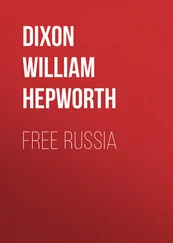Nikolai Nekrasov - Who Can Be Happy and Free in Russia?
Здесь есть возможность читать онлайн «Nikolai Nekrasov - Who Can Be Happy and Free in Russia?» весь текст электронной книги совершенно бесплатно (целиком полную версию без сокращений). В некоторых случаях можно слушать аудио, скачать через торрент в формате fb2 и присутствует краткое содержание. Год выпуска: 2005, Жанр: Поэзия, на английском языке. Описание произведения, (предисловие) а так же отзывы посетителей доступны на портале библиотеки ЛибКат.
- Название:Who Can Be Happy and Free in Russia?
- Автор:
- Жанр:
- Год:2005
- ISBN:нет данных
- Рейтинг книги:3 / 5. Голосов: 1
-
Избранное:Добавить в избранное
- Отзывы:
-
Ваша оценка:
- 60
- 1
- 2
- 3
- 4
- 5
Who Can Be Happy and Free in Russia?: краткое содержание, описание и аннотация
Предлагаем к чтению аннотацию, описание, краткое содержание или предисловие (зависит от того, что написал сам автор книги «Who Can Be Happy and Free in Russia?»). Если вы не нашли необходимую информацию о книге — напишите в комментариях, мы постараемся отыскать её.
Who Can Be Happy and Free in Russia? — читать онлайн бесплатно полную книгу (весь текст) целиком
Ниже представлен текст книги, разбитый по страницам. Система сохранения места последней прочитанной страницы, позволяет с удобством читать онлайн бесплатно книгу «Who Can Be Happy and Free in Russia?», без необходимости каждый раз заново искать на чём Вы остановились. Поставьте закладку, и сможете в любой момент перейти на страницу, на которой закончили чтение.
Интервал:
Закладка:
Now, brother, God hears me,
Come, give me this money!
Next Friday I'll pay you
The very last farthing.
It's not that I care
For the mill—it's the insult!
Whoever knows Érmil,
Whoever believes him,
Will give what he can.'
"A miracle happened; 470
The coat of each peasant
Flew up on the left
As though blown by a wind!
The peasants are bringing
Their money to Érmil,
Each gives what he can.
Though Érmil's well lettered
He writes nothing down;
It's well he can count it
So great is his hurry. 480
They gather his hat full
Of all kinds of money,
From farthings to bank-notes,
The notes of the peasant
All crumpled and torn.
He has the whole sum now,
But still the good people
Are bringing him more.
"'Here, take this, too, Érmil,
You'll pay it back later!' 490
"He bows to the people
In all four directions,
Gets down from the waggon,
And pressing the hat
Full of money against him,
Runs back to the sale-room
As fast as he can.
"The sellers are speechless
And stare in amazement,
The merchant turns green 500
As the money is counted
And laid on the table.
"The sellers come round him
All craftily praising
His excellent bargain.
But Érmil sees through them;
He gives not a farthing,
He speaks not a word.
"The whole town assembles
At market next Friday, 510
When Érmil is paying
His debt to the people.
How can he remember
To whom he must pay it?
No murmur arises,
No sound of discussion,
As each man tells quietly
The sum to be paid him.
"And Érmil himself said,
That when it was finished 520
A rouble was lying
With no one to claim it;
And though till the evening
He went, with purse open,
Demanding the owner,
It still was unclaimed.
The sun was just setting
When Érmil, the last one
To go from the market,
Assembled the beggars 530
And gave them the rouble." …
"'Tis strange!" say the peasants,
"By what kind of magic
Can one single peasant
Gain such a dominion
All over the country?"
"No magic he uses
Save truthfulness, brothers!
But say, have you ever
Heard tell of Prince Yurloff's 540
Estate, Adovshina?"
"We have. What about it?"
"The manager there
Was a Colonel, with stars,
Of the Corps of Gendarmes.
He had six or seven
Assistants beneath him,
And Érmil was chosen
As principal clerk.
He was but a boy, then, 550
Of nineteen or twenty;
And though 'tis no fine post,
The clerk's—to the peasants
The clerk is a great man;
To him they will go
For advice and with questions.
Though Érmil had power to,
He asked nothing from them;
And if they should offer
He never accepted. 560
(He bears a poor conscience,
The peasant who covets
The mite of his brother!)
Well, five years went by,
And they trusted in Érmil,
When all of a sudden
The master dismissed him
For sake of another.
And sadly they felt it.
The new clerk was grasping; 570
He moved not a finger
Unless it was paid for;
A letter—three farthings!
A question—five farthings!
Well, he was a pope's son
And God placed him rightly!
But still, by God's mercy,
He did not stay long:
"The old Prince soon died,
And the young Prince was master. 580
He came and dismissed them—
The manager-colonel,
The clerk and assistants,
And summoned the peasants
To choose them an Elder.
They weren't long about it!
And eight thousand voices
Cried out, 'Érmil Gírin!'
As though they were one.
Then Érmil was sent for 590
To speak with the Barin,
And after some minutes
The Barin came out
On the balcony, standing
In face of the people;
He cried, 'Well, my brothers,
Your choice is elected
With my princely sanction!
But answer me this:
Don't you think he's too youthful?' 600
"'No, no, little Father!
He's young, but he's wise!'
"So Érmil was Elder,
For seven years ruled
In the Prince's dominion.
Not once in that time
Did a coin of the peasants
Come under his nail,
Did the innocent suffer,
The guilty escape him, 610
He followed his conscience."
"But stop!" exclaimed hoarsely
A shrivelled grey pope,
Interrupting the speaker,
"The harrow went smoothly
Enough, till it happened
To strike on a stone,
Then it swerved of a sudden.
In telling a story
Don't leave an odd word out 620
And alter the rhythm!
Now, if you knew Érmil
You knew his young brother,
Knew Mítyenka, did you?"
The speaker considered,
Then said, "I'd forgotten,
I'll tell you about it:
It happened that once
Even Érmil the peasant
Did wrong: his young brother, 630
Unjustly exempted
From serving his time,
On the day of recruiting;
And we were all silent,
And how could we argue
When even the Barin
Himself would not order
The Elder's own brother
To unwilling service?
And only one woman, 640
Old Vlásevna, shedding
Wild tears for her son,
Went bewailing and screaming:
'It wasn't our turn!'
Well, of course she'd be certain
To scream for a time,
Then leave off and be silent.
But what happened then?
The recruiting was finished,
But Érmil had changed; 650
He was mournful and gloomy;
He ate not, he drank not,
Till one day his father
Went into the stable
And found him there holding
A rope in his hands.
Then at last he unbosomed
His heart to his father:
'Since Vlásevna's son
Has been sent to the service, 660
I'm weary of living,
I wish but to die!'
His brothers came also,
And they with the father
Besought him to hear them,
To listen to reason.
But he only answered:
'A villain I am,
And a criminal; bind me,
And bring me to justice!' 670
And they, fearing worse things,
Obeyed him and bound him.
The commune assembled,
Exclaiming and shouting;
They'd never been summoned
To witness or judge
Such peculiar proceedings.
"And Érmil's relations
Did not beg for mercy
And lenient treatment, 680
But rather for firmness:
'Bring Vlásevna's son back
Or Érmil will hang himself,
Nothing will save him!'
And then appeared Érmil
Himself, pale and bare-foot,
With ropes bound and handcuffed,
And bowing his head
He spoke low to the people:
Интервал:
Закладка:
Похожие книги на «Who Can Be Happy and Free in Russia?»
Представляем Вашему вниманию похожие книги на «Who Can Be Happy and Free in Russia?» списком для выбора. Мы отобрали схожую по названию и смыслу литературу в надежде предоставить читателям больше вариантов отыскать новые, интересные, ещё непрочитанные произведения.
Обсуждение, отзывы о книге «Who Can Be Happy and Free in Russia?» и просто собственные мнения читателей. Оставьте ваши комментарии, напишите, что Вы думаете о произведении, его смысле или главных героях. Укажите что конкретно понравилось, а что нет, и почему Вы так считаете.











